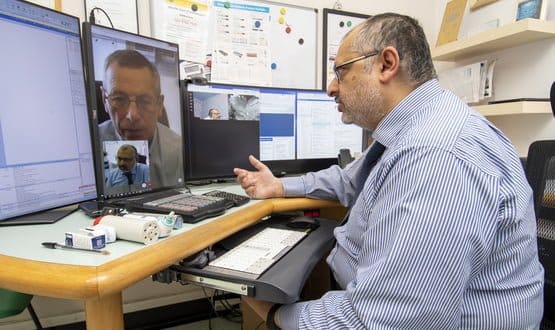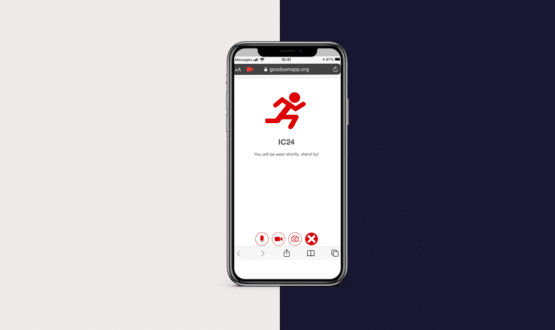‘Majority’ of NHS trusts lack training for video conferencing
- 17 January 2020

Data uncovered through a recent Freedom of Information (FOI) request suggests that just over half of NHS trusts don’t have processes in place to teach staff how to use video conferencing systems.
Video conferencing software provider StarLeaf sent an FOI request to 80 NHS trusts across the country to identify the main tools staff were using to communicate, and understand the key challenges they faced when enabling collaboration.
It found that, despite 80% of trusts implementing video conferencing technology, 56% did not have training programmes in place to ensure staff were using these systems correctly.
This is despite nearly three-quarters (74%) of trusts claiming they used video conferencing as one of their primary means of communication, and 48% saying there were planning to introduce virtual consultations or appointments via video in the near future.
The research also found that, where video conference systems were overly complex, staff would shun NHS-approved applications and instead turn to ‘shadow’ IT services, such as WhatsApp, to communicate and share information.
This could have a serious impact on the security and privacy of patient data across the NHS, StarLeaf noted.
“Effective communication should be the backbone for any trust but the evidence we’ve seen suggests that when faced with cumbersome video conferencing equipment and limited training, it’s easy for people to turn to familiar tools such as WhatsApp,” said Mark Loney, CTO at StarLeaf.”
“This puts trusts at the risk of security breaches.”
StarLeaf’s FoI follows findings from the Royal College of Physicians earlier this week suggesting that only one in 10 GPs were consulting with outpatients via video, despite many believing the technology could ease pressure on services.
The slow uptake of digital services is at odds with commitments in the NHS Long Term Plan to avoid up to a third of face-to-face appointments.
The plan commits to a redesign of services over the next five years to reduce pressure on outpatient appointments.
Meanwhile, a Kings Fund report from summer 2019 found a lack of funding for digital technology had left finance directors with “little or no” confidence that physical outpatient appointments would be reduced.





2 Comments
How to engage the NHS.
Don’t Submit a pointless FOI. It creates loads of extra work and is often unhelpful and deters staff away from helping frontline doctors and nurses from doing their Jobs. You may not see or think this but it does. So claims or efficiencies are actually potentially futile due to approach.
Just talk to people in roles in orgs you want to work with. If your product is up to it, they’ll engage.
if your product is that good you shouldn’t really need training…..
And most of the NHS will move to standards, and likely office 365, bespoke products need a strategy place if they have a place.
This emphasises that tools in healthcare should use user experience best practice to ensure adoption, with security built in. Sadly, many tools built and deployed in this industry are awful and so clinicians don’t use them.
Comments are closed.